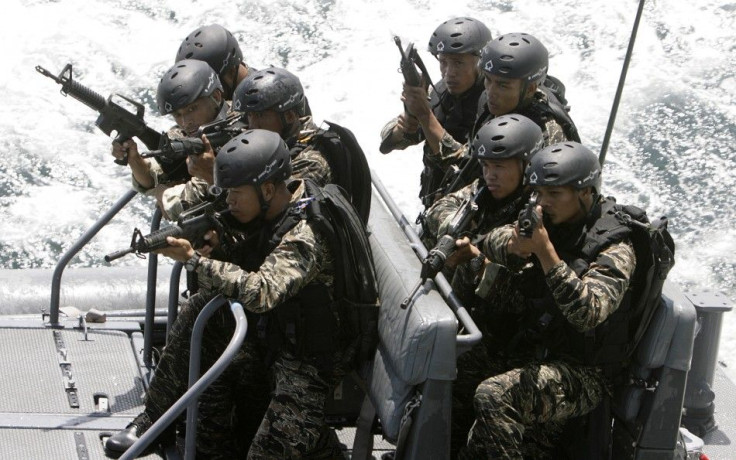US-Philippines Hold War Games In South China Sea

The United States and the Philippines kicked off 11 days of military drills in the South China Sea, an annual event that is especially significant as a territorial dispute between China and the Philippines deepens.
The conduct of this annual event reflects the aspirations to further relations with our strategic ally, a commitment that has to be nurtured especially in the context of the evolving challenges in the region,'' stated Philippines' armed forces chief Jessie Dellosa.
A total of nearly 7,000 troops were involved in the so-called Balikatan 2012 War Games, the latest of annual exercises established by the U.S.–Philippines Mutual Defense Treaty of 1951, according to the Manilla Bulletin. The American presence in the event is larger than in previous years as President Barack Obama begins to strategically shift troops to the Asia-Pacific region.
Let there be no doubt: in the Asia-Pacific [region] in the 21st century, the United States of America is all in, Obama said in November. With most of the world's nuclear powers and some half of humanity, Asia will largely define whether the century ahead will be marked by conflict or cooperation, needless suffering or human progress.
The Balikatan exercises will test the navies' readiness for disasters and humanitarian missions, and will also include mock combat missions. One such scenario will be a terrorist take-over of an oil rig, according to the Associated Press.
“It is imperative for our ground forces to sustain operational readiness, keeping in mind the critical times that we are in now,” Dellosa said during the opening ceremonies. “It is during these times that our alliances must be reaffirmed.”
The South China Sea became the pivot point of regional military tension last year, when China sent warships into the waters that are also claimed by the Philippines, Brunei, Malaysia, Vietnam and Taiwan.
Last week, another diplomatic impasse occurred when the Filipino navy stopped and boarded eight Chinese fishing vessels in the disputed Scarborough Shoal, prompting a stand-off when Chinese surveillance ships tried to prevent arrests. China also responded in kind by telling a Philippine archaeological ship to immediately leave the waters of Huangyan Island, according to Xinhua.
Despite the quarrels, the Philippines' Maj Emmanuel Garcia insisted on Monday that the exercises were unrelated to recent events and that no exercises that will be held in contested areas.
President Benigno Aquino III added that the Philippines had withdrawn its warships from the Scarborough Shoal and replaced them with a coastguard boat, the Philippine Star reported.
Nonetheless, previous exercises usually took place in territories under the threat of homegrown insurgencies while this year's Balikatan actions are occurring in the disputed seas off of the Palawan province, which both China and the Philippines claim.
“There is no reason for anyone to feel threatened by us coming together, working through our inter-operabilities so we can better respond and help people across the region,” U.S. Marine Lt. Col. Curtis Hill said in a press conference on Monday morning.
© Copyright IBTimes 2024. All rights reserved.




















